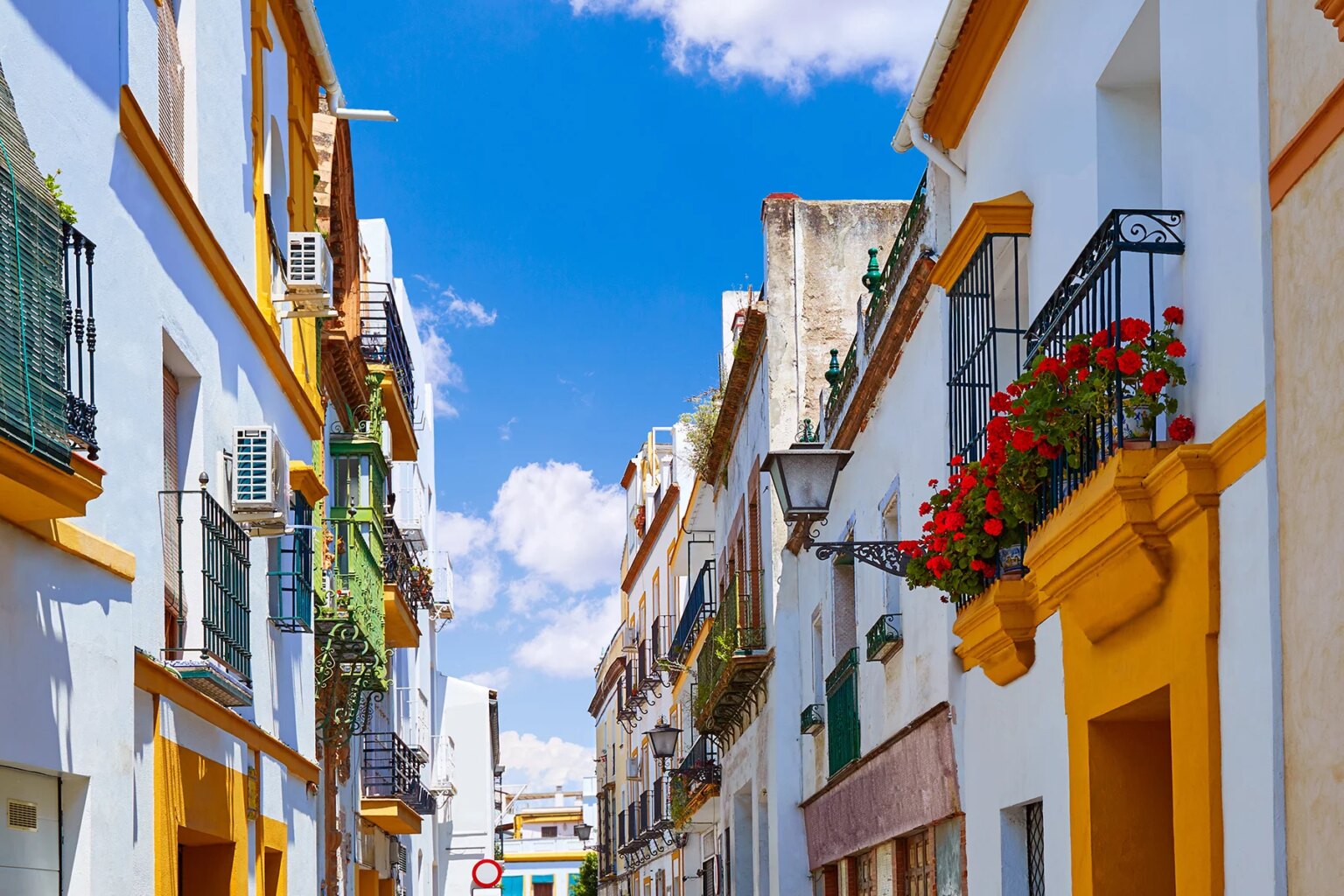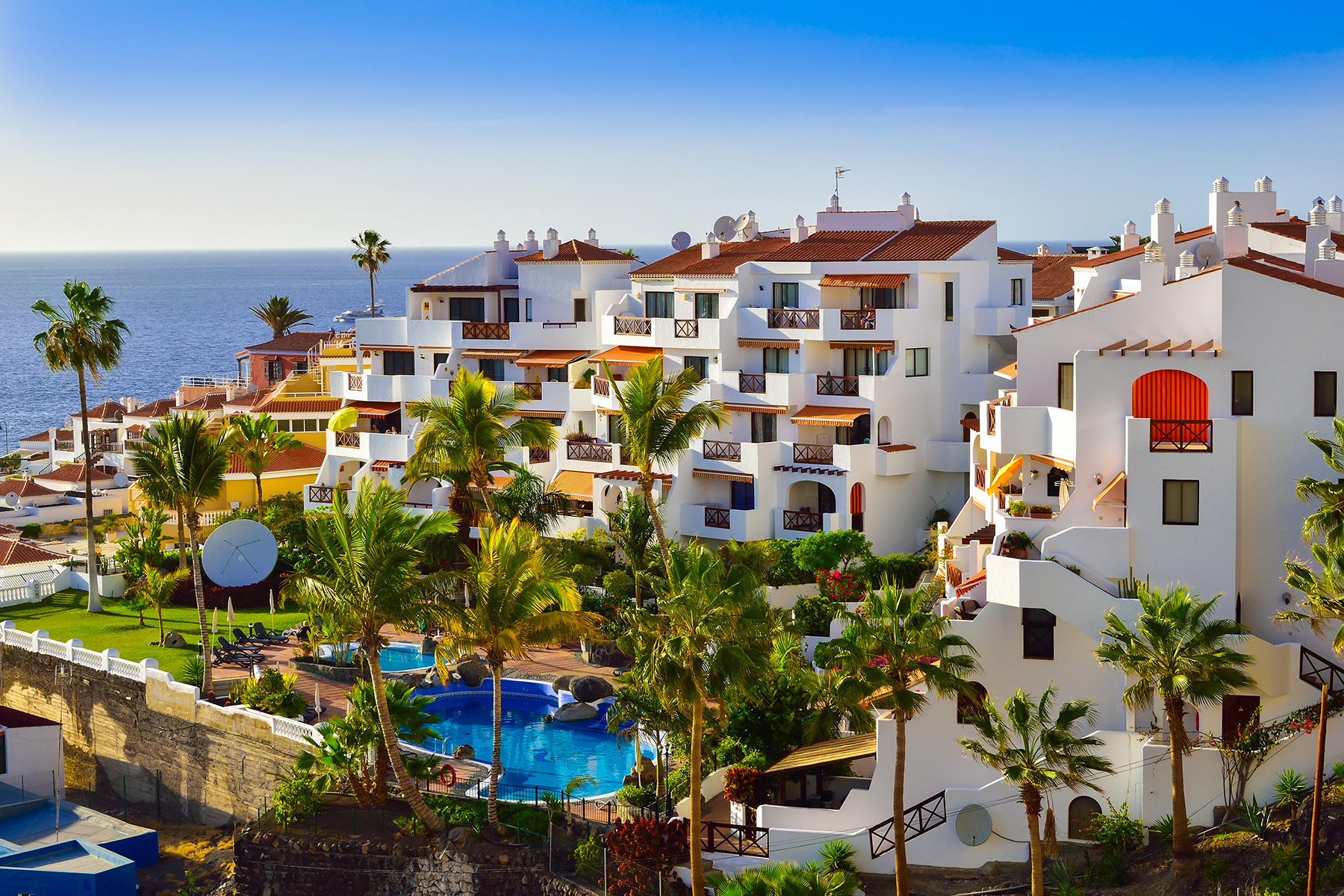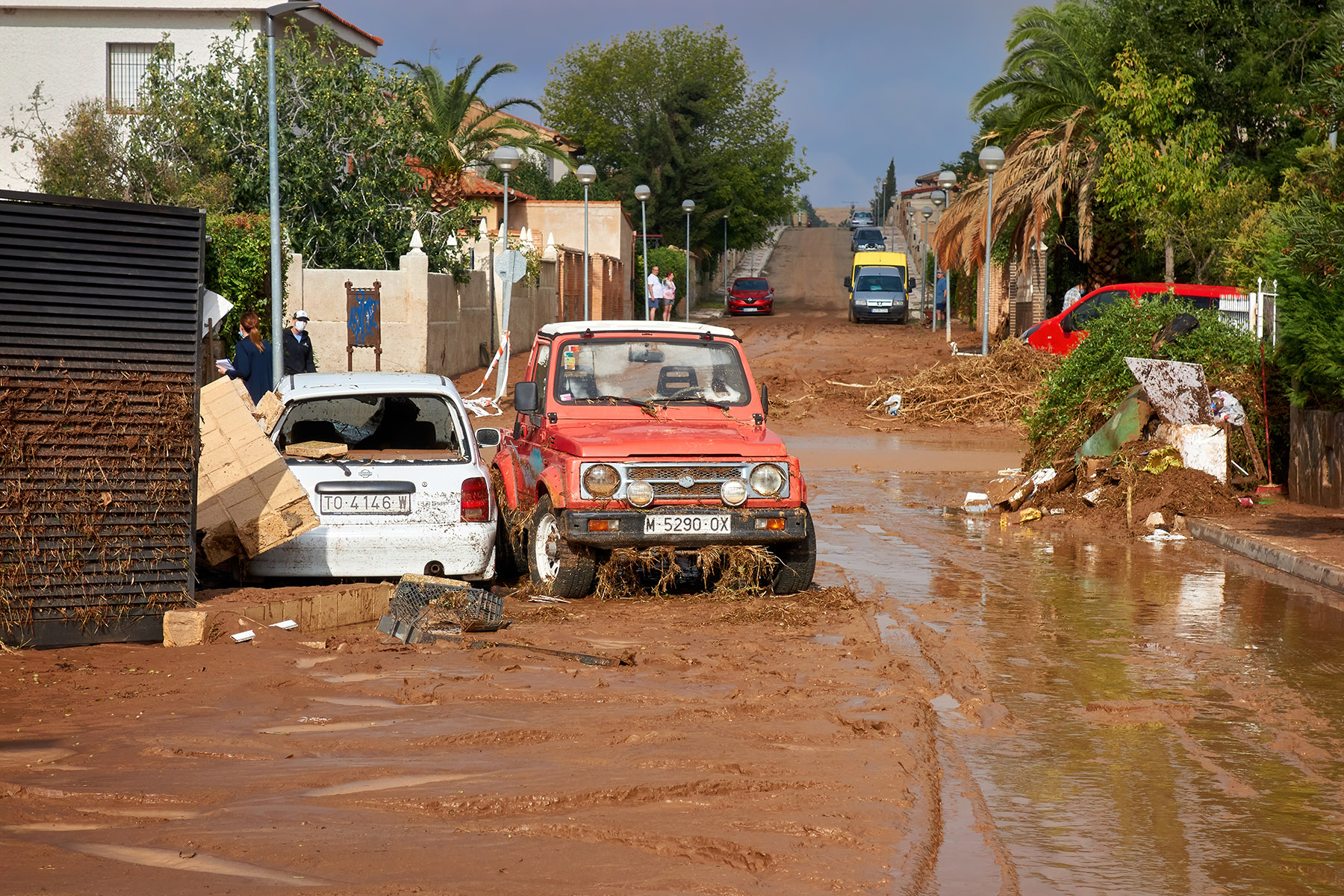Continue reading for the following information:
- Homeownership in Spain
- Should you buy or rent property in Spain?
- Can expats buy property in Spain?
- The Spanish property market and property prices
- Costs of buying a property in Spain
- Financing a property purchase in Spain
- Finding a property in Spain
- The process of buying a property in Spain
- Moving into your Spanish property
- Buying land to build a new property in Spain
- Buying a new-build home in Spain
- Selling a property in Spain
- Useful resources
BCN Life
Make your move to Spain seamless with BCN Life. This team of American relocation experts can help you start your dream life in Spain, with services including real estate purchases and rentals, assistance with visas, and advice on living in Barcelona. Get in touch with BCN Life for a stress-free move to Spain
Homeownership in Spain
Homeownership levels in Spain are high, with around 80% of residents owning their own property, and many doing so without a mortgage.
Spain suffered significantly during the global financial crisis and the ensuing property market crash. House prices dropped by as much as 30%, but in the last few years, the market has become more stable.
Prices in Spain have been rising steadily since 2016, and although the COVID-19 outbreak has affected the market in 2020, official figures show average prices grew during the second quarter of the year. Sale prices increased by 2.1% year-on-year, with new-build prices rising by 4.2% and second-hand homes increasing by 1.8%.
Understandably, the number of house sales has fallen significantly. Government statistics show that international buyers purchase around 18,000–25,000 homes in Spain for each quarter of the year. In the second quarter of 2020, however, that figure fell below 10,000.
The full economic effects of COVID-19 on the Spanish property market are still to be seen. Property experts predict that house price values could fall by 5–10% in the short term.
Should you buy or rent property in Spain?
The Spanish property market has many quirks, and it pays to do your research before buying. Factors to be aware of when buying Spanish property include property scams, high capital gains tax, and fluctuations in the property market.
The added uncertainty caused by COVID-19 means that now could be a risky time to buy in Spain. The country’s rental market is also in flux.
Before the pandemic, regional governments were looking to introduce stronger rules around people buying holiday lets, after rent prices increased significantly in areas popular with investors.
Each of Spain’s 17 regions has the power to set rules around foreign buyers purchasing properties to let out. The most stringent rules are in the Balearic Islands, where only Spanish residents can apply for buy-to-let licenses, and Madrid, where new measures include only allowing stays of up to five days.
If you’re considering a shorter stay, renting in Spain could be a more suitable option once you factor in Spain’s high levels of capital gains tax, which could offset any benefits of buying in the short-term.
Can expats buy property in Spain?
Buying a holiday let might be more complex than before, but Spain is a very welcoming country for foreign buyers that limits the possibilities for common homebuying blunders.
The rules for buying a property in Spain as an expat are relatively straightforward. Before buying, you’ll require a financial number, which can be obtained by visiting a police station with your passport. This is typically processed on the same day for Spanish or EU citizens, but may take a few weeks for others.
While buying a property in Spain as an expat can be complicated, these legal firms and relocation experts can help you out:
The Spanish property market and property prices
The full impact of COVID-19 on Spanish property prices is yet to be fully understood, so it’s only possible to give a general indication of what’s happening to the market.
Pre-pandemic analysis from the Global Property Guide showed average property costs per square meter for 14 of Spain’s 17 autonomous regions.
The figures, based on the third quarter of 2019, showed average house prices in major cities rose by 5% to reach €1,649 per square meter, while properties on the Balearic and Canary Islands saw an 11% increase to reach €1,604 per square meter.
The most expensive places to buy in Spain are San Sebastian, Barcelona, and Madrid. Prices in all three areas ranged from €3,000 to €3,600 per sqm.
Madrid was the most expensive place to buy land in Spain, with prices of €338 per square meter. The Canary Islands (€245), Catalunya (€184), Andalucia (€171), and Valencia (€158) made the top five. Castilla y Leon is the cheapest place to buy, with average land prices of €66 per square meter.
Costs of buying a property in Spain
Fees for buying a property in Spain vary from area to area, and many are negotiable – for example, there are no fixed fees for lawyers or estate agents. Buyers must pay the majority of the costs, which are generally as follows:
- Property transfer tax: 6–10% (existing properties) / VAT (or IVA) at 10% (new properties)
- Notary costs, title deed tax, and land registration fee: 1–2.5%
- Legal fees: 1–2% (including VAT)
The seller usually pays the estate agent fees in Spain. Estate agents usually charge their fees as a percentage, typically around 3% of the final sale price.
Financing a property purchase in Spain
Some overseas buyers purchase without a mortgage, but it is possible to obtain finance to buy a home. Spanish banks and international banks offer mortgages; some also offer specific deals for expats from certain countries.
Wise
Buying a property abroad is a big step and involves important financial decisions. Wise, an international money transfer company, provides specialist support to help you navigate large international transfers and save on exchange fees. Fill out Wise’s online form today to find out how they can assist you.
As an overseas buyer, you may find you can only borrow at a lower loan-to-value (LTV) rate than Spanish residents, meaning you’ll need a bigger deposit. Spanish residents can generally borrow up to 80% of the property’s assessed value, but non-residents might be limited to 60–70% LTV, depending on the mortgage type.
Mortgage lenders will not complete a mortgage agreement until you own a property. It’s important to include a clause in the property’s purchase contract allowing you to pull out if you cannot acquire a mortgage.
In Spain, any debt tied to a property is transferred to the new owner when the property is sold. This means it is critically important to ensure that there are no debts attached to the property, or that if there are, they are covered by the terms of the contract.
If you need help or advice on organizing your financing for a home, it’s worth contacting an expat-friendly mortgage broker such as:

Senior Mortgage Advisor
Stuart Payne
Insider tip: Secure a mortgage pre-approval
A mortgage pre-approval is vital. This quick, straightforward process gives you a clear idea of what you can borrow. Studies show that buyers with pre-approval can negotiate better deals as they are considered serious contenders in the market. With a pre-approved mortgage, you can target properties within your budget, minimize disappointment, and allow for quicker offers on homes you love.
Finding a property in Spain
As it is easy for foreigners to buy property in Spain, there are many websites and estate agents catering to almost every language and nationality, including:
Many British real estate websites also list Spanish properties, with some online portals listing thousands of options. However, these mostly focus on holiday homes. As a result, you may prefer to use a Spanish site instead.
It is possible to buy a home before you arrive and move in directly. However, this naturally comes with risks. You should view the property you are considering and don’t cut corners on the process, even if this means spending some weeks in a hotel when you arrive.
Estate agents in Spain
Estate agents can provide a wealth of information about the region, are bilingual, and often deal with overseas buyers; they are a useful asset in your Spanish property search. However, regulation is relatively low and unscrupulous estate agents do exist, so be wary of anyone who asks for payments upfront or suggests cutting corners.
Always remember that you can choose your own notary, mortgage provider, and so forth; you do not need to use a service suggested by the estate agent.
You can find more real estate agencies and property companies in Expatica’s Spanish directory.
The process of buying a property in Spain
The process of buying a property in Spain usually runs as follows. First, the buyer makes an offer. If this is accepted, then the buyer and seller sign a preliminary contract (contrato privado de compravento) and the buyer pays a deposit, typically 10% of the purchase price.
The buyer then arranges any mortgage they require, although they should have already discussed their needs with the mortgage provider. The contract of sale (escritura de compravento) is usually signed in front of a notary, at which point the full sale price, taxes, and other costs become due.
Viewing property in Spain and making an offer
Once you’ve found a property you like, you’ll usually need to make an offer through the seller’s estate agent.
As in other countries, prices are open to negotiation; the property’s asking price is an indication rather than a demand. Unless the price is particularly attractive or you’re competing with other buyers, it makes sense to start negotiations below the asking price, but not so low as to offend the seller.
Basic negotiations on price are often done verbally. Once you reach an outline agreement, you should have your offer summarized in writing by your notary.
Hiring a solicitor or notary
The services of a notary are not legally necessary to complete the sale. Having a lawyer to complete the due diligence is highly advised and is required by many mortgage lenders.
The buyer is responsible for registering the property. Your notary may provide this service for a fee, and/or may notify the registry office that the sale has taken place, without completing full registration.
Pomerol Legal Partners
Pomerol Legal Partners specializes in providing comprehensive legal solutions for real estate transactions. From due diligence to financing, tax structuring, acquisitions, and dispute resolution, their experienced team ensures legal certainty and helps clients maximize their investments and goals.
Any lawyer practicing in Spain should be registered with the local bar association (Colegio de Abogados). They will have a registration number that you can ask for and then verify with the bar association. Naturally, registration does not guarantee honesty or competence, but it is a good minimum standard to insist on.
You can find a list of all the bar associations at the national website for Spanish lawyers, Abogacía Española.
Organizing your finances and paying fees
Once the transaction has been notarized, you’ll need to pay some of the fees associated with the purchase. The estate agent’s fee will likely come first, followed by the notary’s fee. Some weeks later (the exact time frame varies), the notary will set a date for you to transfer the full purchase amount to the seller.
Habeno
Ready to buy your dream home in Spain? Habeno offers tailored mortgage solutions and expert guidance for non-residents. Simplify your property purchase with exclusive deals and dedicated support from their experienced team. Make your Spanish property dream a reality – start your journey with Habeno today.
If you have income from different countries or in various currencies, this may seem like a more complicated process. However, you have many options when it comes to purchasing property in Spain.
If you currently live in the country, you can open a domestic bank account. If you do not, you may want to speak to a financial advisor or consider a specialized money transfer service that can help you send money from a bank account outside Spain to purchase your property.
Wise, for example, has a specialist team to help move large transfers abroad and can save you money on exchange fees.
Arranging a survey
It’s possible to buy a property in Spain without having a house survey, but this isn’t advised. A house survey helps you ensure there are no significant defects with the property that could come back to haunt you further down the line.
For existing properties, there are generally two main types of survey available. A valuation report is a surface-level survey that gives you an independent guide to the property’s market value.
A building survey goes deeper, looking at the structural condition of the property and outlining any serious issues. Building surveys are more expensive than valuation reports, but they also provide a more comprehensive guide to the property’s condition.
Translators for your Spanish house purchase
Many governments provide lists of lawyers and translators who speak both Spanish and another language. The British Embassy’s list of English-speaking lawyers and translators is a useful resource.
The Spanish government provides a list of accredited translators.
Moving into your Spanish property
Insurance
It’s highly recommended that you take out home insurance when buying a home in Spain.
A building insurance policy (which covers the structure of the property against natural disasters, fire, and other damage) is often a requirement for mortgage providers.
Contents insurance (which covers your belongings in the home) isn’t legally necessary. It could be a wise investment, however, especially if you plan to rent out your property or you spent a lot of time away from home.
Utilities and telecommunications
Setting up utilities is one of the more tedious tasks when buying a home in Spain. You may find that the previous owner already had policies in place that you can take over.
Waste disposal is managed at a municipal level, with annual fees for rubbish collection. With other utilities, such as gas, electricity, and water, you’ll be able to compare deals before settling on a provider.
For some elements of the move, it might be worth hiring a contractor. You can usually find these online or via searches on platforms such as TaskRabbit. Make sure you check what qualifications your contractor needs, as some electrical, plumbing, or gas jobs need to be carried out by a professional.
Buying land to build a new property in Spain
For a long time, Spain has been popular with overseas buyers looking for holiday homes. On occasion, the large numbers of inexperienced foreign buyers have provided an opportunity for unscrupulous developers and estate agents to sell properties that are not legitimate.
In some cases, planning permission has not been acquired before building, and properties are eventually torn down by the local government. In others, the quality of the property has not been up to scratch or as indicated, resulting in costly repairs.
The British Foreign Office has issued notices warning expat buyers to be cautious and not take unnecessary risks. They recommend, at minimum, checking:
- The credentials of the lawyers or estate agents involved
- The land registry (Registro de la Propriedad)
- That there is appropriate planning permission
- That the property has no outstanding debts
- That the property is structurally sound (either a surveyor or an architect can do this).
Most of this information can be provided by the land registry and accessed by making a request by e-mail, phone, fax, or in person. You can find the appropriate land registry office by visiting the national website: www.registradores.org (Spanish only).
Buying a new-build home in Spain
The worst property scams in Spain, as elsewhere, involve unfinished or unbuilt properties. While malicious intent is rare, caution is advisable when buying a property that does not yet exist. At a minimum, you should:
- Check the company exists and ensure the project is registered with the land registry.
- Check that planning permission has been granted by enquiring at the local city hall.
- Not sign a contract you don’t understand.
- Enlist an independent party for any translations.
- Demand proof that any sums paid (e.g., a deposit) are being held or spent appropriately.
- Get proof that you’ll get a refund of your money if the property is not built.
As a non-resident, you may also buy land and have a property built yourself.
Selling a property in Spain
Capital gains tax (CGT) can be a big barrier to selling a property in Spain. CGT is paid on the profit of selling your home, and the level varies between 19% and 23%, as follows:
- First €6,000: 19%
- €6,000–€50,000: 21%
- €50,000 or more: 23%
If you pay €200,000 for a property and sell it for €350,000, you pay CGT on €150,000. Due to the tiered system, this adds up to €33,260.
You may be able to claim a reduction on CGT to account for inflation, if you are purchasing another property in Spain, or if you are over 65 and have lived in the property as your main residence for more than three years.
Otherwise, unlike in other countries, CGT applies no matter how long you’ve lived in the property. Your residential status does not affect the application of tax, as CGT should be paid on property owned in Spain even if you are no longer a resident.











